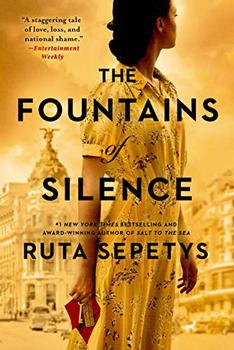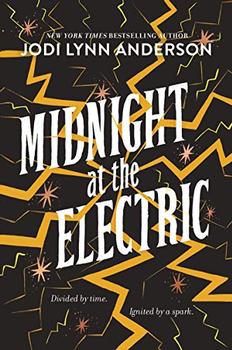Summary | Excerpt | Reading Guide | Reviews | Beyond the book | Read-Alikes | Genres & Themes | Author Bio

The ghosts of war reverberate across the generations in a riveting, time-shifting story within a story from acclaimed thriller writer Tim Wynne-Jones.
When Evan's father dies suddenly, Evan finds a hand-bound yellow book on his desk - a book his dad had been reading when he passed away. The book is the diary of a Japanese soldier stranded on a small Pacific island in WWII. Why was his father reading it? What is in this account that Evan's grandfather, whom Evan has never met before, fears so much that he will do anything to prevent its being seen? And what could this possibly mean for Evan? In a pulse-quickening mystery evoking the elusiveness of truth and the endurance of wars passed from father to son, this engrossing novel is a suspenseful, at times terrifying read from award-winning author Tim Wynne-Jones.
The contemporary story of Evan and his grandfather is realistic and convincing as a modern-day story of a young man coming of age during a time of grief. The historical narrative includes supernatural scenes and creatures whose presence adds suspense—even terror—and vividly deepens and enriches the novel's themes about the vital need for storytelling, the strength of memories, the strong pull of family connections, and the catastrophic personal and social costs of war. Pretty intense stuff for a novel that will be shelved in the YA sections at bookshelves and libraries—which is one reason why The Emperor of Any Place is worthwhile reading for anyone, regardless of age...continued
Full Review
(511 words)
This review is available to non-members for a limited time. For full access,
become a member today.
(Reviewed by Norah Piehl).
Two of the monsters that haunt the island of Kokoro-Jima in the novel The Emperor Of Any Place are borrowed from traditional Japanese mythology.
Jikininki might remind many readers of zombies. In The Emperor of Any Place, they devour the bodies of deceased soldiers who have washed ashore on Kokoro-Jima, but what they are hungry for isn't brains but stories and memories. These creatures are inspired by corpse-eating ghosts from Japanese Buddhist mythology.
 According to legends, these are the ghosts of people who were selfish or greedy during their lifetimes and are consequently doomed to a sort of half-life, kept alive by the flesh of human corpses. Jikininki are apparently self-loathing, longing to be freed from a horrific ...
According to legends, these are the ghosts of people who were selfish or greedy during their lifetimes and are consequently doomed to a sort of half-life, kept alive by the flesh of human corpses. Jikininki are apparently self-loathing, longing to be freed from a horrific ...
This "beyond the book" feature is available to non-members for a limited time. Join today for full access.

If you liked The Emperor of Any Place, try these:

by Ruta Sepetys
Published 2020
From the #1 New York Times bestselling author of Salt to the Sea and Between Shades of Gray comes a gripping, unforgettable portrait of love, silence, and secrets amidst a Spanish dictatorship.

by Jodi Lynn Anderson
Published 2019
New York Times bestselling author Jodi Lynn Anderson's epic tale - told through three unforgettable points of view - is a masterful exploration of how love, determination, and hope can change a person's fate.